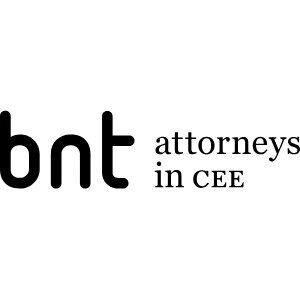Best Nonprofit & Charitable Organizations Lawyers in Estonia
Share your needs with us, get contacted by law firms.
Free. Takes 2 min.
Or refine your search by selecting a city:
List of the best lawyers in Estonia
About Nonprofit & Charitable Organizations Law in Estonia
Nonprofit and charitable organizations in Estonia are primarily regulated under the Non-profit Associations Act. This legal framework provides the basis for establishing nonprofit associations which can operate for various purposes, including social, cultural, educational, or charitable objectives. These organizations must comply with registration requirements and fulfill reporting obligations. They enjoy several benefits, such as tax exemptions, provided they meet certain criteria set by the Estonian government.
Why You May Need a Lawyer
Engaging legal expertise in the field of nonprofit and charitable organizations can be critical in various situations. These include establishing a nonprofit entity, navigating compliance and regulatory requirements, drafting constitutional documents, maintaining tax-exempt status, managing employment matters within the organization, and addressing any potential disputes or legal issues that may arise. A lawyer can also provide guidance on governance practices to ensure transparency and accountability within your organization.
Local Laws Overview
Estonia has specific laws governing nonprofit organizations. Key issues include registration procedures, which are handled through the Estonian Business Register, compliance with the Non-profit Associations Act, and adherence to financial reporting standards. Additionally, nonprofits can apply for public benefit status, which can confer tax advantages. It's important for organizations to understand and comply with the regulations concerning fundraising and donations, as well as the requirements for annual reporting and audits if applicable.
Frequently Asked Questions
1. What is required to establish a nonprofit organization in Estonia?
Establishing a nonprofit organization requires a founding meeting, adoption of statutes, and registration in the Estonian Business Register.
2. Can a nonprofit in Estonia engage in commercial activities?
Yes, but these activities must support the nonprofit’s primary objectives, and profits should be reinvested in the organization’s activities.
3. What is the role of the board in a nonprofit organization?
The board is responsible for the strategic direction and oversight, ensuring compliance with laws and the governance framework outlined in the statutes.
4. How can a nonprofit gain public benefit status?
Organizations can apply to the Estonian Tax and Customs Board to be granted public benefit status, which provides tax exemptions under certain conditions.
5. Are there any tax advantages for donors to Estonian nonprofits?
Yes, individuals and corporations may receive tax incentives for donations to organizations with public benefit status.
6. What annual reporting is required of nonprofits in Estonia?
Nonprofits must file annual reports providing financial statements and an overview of activities to the Estonian Business Register.
7. How can a nonprofit ensure compliance with Estonian law?
Regular legal audits, consultations with legal experts, and adherence to good governance practices can help maintain compliance.
8. Can foreign nationals establish a nonprofit in Estonia?
Yes, foreign nationals can establish or be part of nonprofit organizations in Estonia, subject to the same legal requirements as locals.
9. What legal challenges may nonprofits face in Estonia?
Common challenges include maintaining tax-exempt status, managing governance disputes, and ensuring compliance with financial and reporting obligations.
10. How are nonprofit disputes typically resolved?
Disputes may be addressed internally through governance mechanisms, or externally via mediation, arbitration, or court proceedings if necessary.
Additional Resources
The following resources provide valuable information and support for those involved in nonprofit and charitable organizations in Estonia:
- Estonian Nonprofit Association (Eesti Mittetulundusühingute Liit)
- Tax and Customs Board (Maksu- ja Tolliamet) for guidance on tax-related matters
- The Estonian Business Register for registration and reporting
- The Ministry of the Interior for policy and regulatory frameworks
Next Steps
If you need legal assistance with nonprofit and charitable organizations in Estonia, consider the following steps:
- Consult with a lawyer experienced in Estonian nonprofit law to assess your specific needs.
- Prepare documentation regarding your organization’s activities, goals, and governance structure.
- Engage legal expertise to ensure compliance with local regulations and to draft or review organizational documents.
- Stay informed about changes in laws affecting nonprofits by regularly consulting with legal professionals and utilizing available resources.
Lawzana helps you find the best lawyers and law firms in Estonia through a curated and pre-screened list of qualified legal professionals. Our platform offers rankings and detailed profiles of attorneys and law firms, allowing you to compare based on practice areas, including Nonprofit & Charitable Organizations, experience, and client feedback.
Each profile includes a description of the firm's areas of practice, client reviews, team members and partners, year of establishment, spoken languages, office locations, contact information, social media presence, and any published articles or resources. Most firms on our platform speak English and are experienced in both local and international legal matters.
Get a quote from top-rated law firms in Estonia — quickly, securely, and without unnecessary hassle.
Disclaimer:
The information provided on this page is for general informational purposes only and does not constitute legal advice. While we strive to ensure the accuracy and relevance of the content, legal information may change over time, and interpretations of the law can vary. You should always consult with a qualified legal professional for advice specific to your situation.
We disclaim all liability for actions taken or not taken based on the content of this page. If you believe any information is incorrect or outdated, please contact us, and we will review and update it where appropriate.
Browse nonprofit & charitable organizations law firms by city in Estonia
Refine your search by selecting a city.















